October 18, 2019, by Michael Timmins
Summer volunteering in Fiji
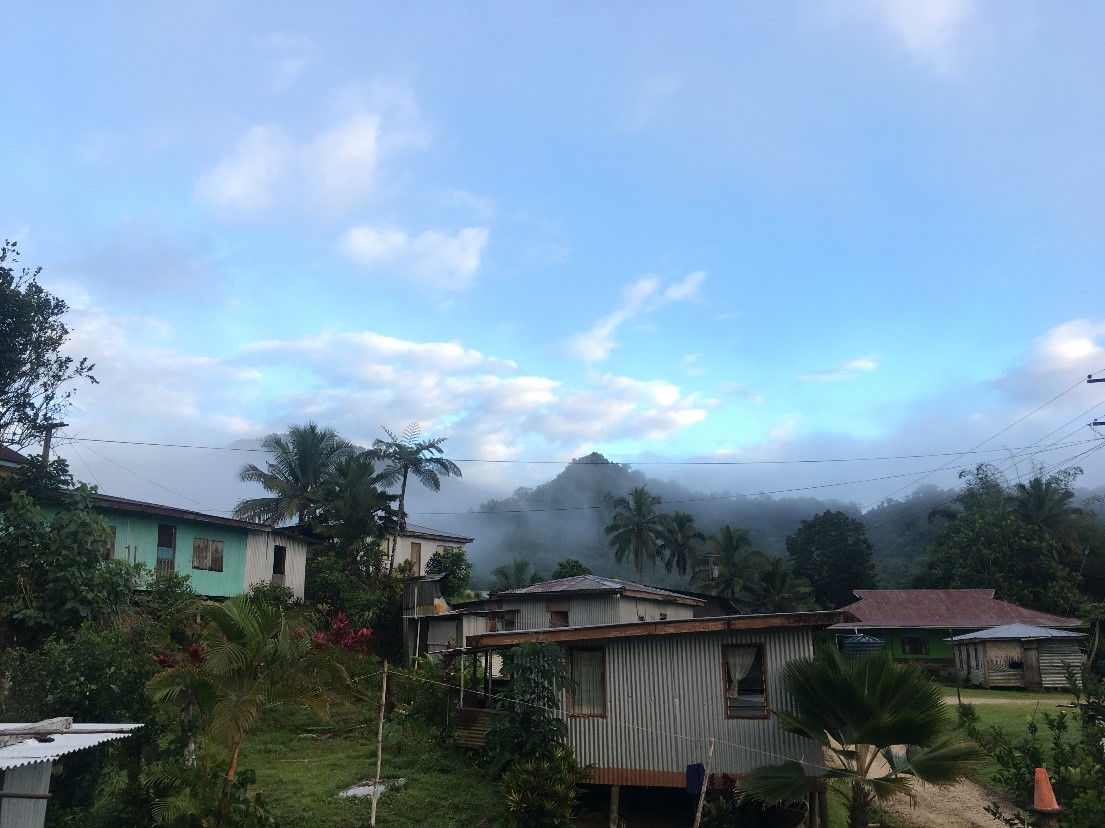
Morning view across the village
Bula!
Dancing gracefully across the woven grass mats, soft shafts of light spill through the rectangular openings in the aluminium shell of the house, as the worn wooden shutters are propped open revealing a dense rain-forest unfolding beyond. A thick mist clinging to the horizon cloaks the scene, yet the penetrating symphony of birds and insects reminds you the land is awake.
My name is Ella, a second year Liberal Arts student, and this was my morning view each day for a month over summer as I embarked on a month-long volunteer expedition to the Fiji Islands.
The summer holidays whilst at University can be a perfect time to challenge yourself to a new adventure that leads to fantastic experiences, as well as long-lasting memories and friends. I was inspired to spend my summer assisting in a rural Fijian community and school – a trip of a lifetime organised by the Think Pacific Foundation.
Partnered with the Fijian Government, the charity Think Pacific deliver incredible projects enabling you to become fully immersed in Fiji’s fascinating and vibrant culture. From living alongside a local host family in a remote village, learning traditional dances (Mekes) and having ceremonial Kava with the Chief, to leading sports and 1:1 Maths and English lessons, helping empower the next generation, there is a myriad of unique opportunities to discover!
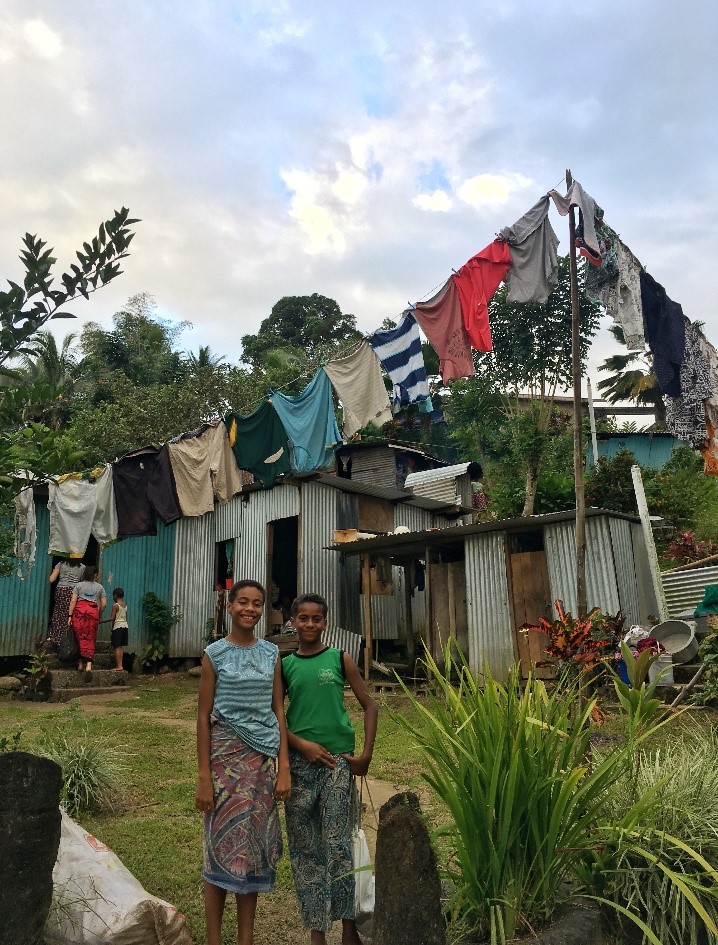
Milly and Makie in front of family home
My adventure, joining a handful of University of Nottingham and Exeter students together, saw us welcomed into a beautiful village nestled in the highlands of Fiji’s main Island- Viti Levu- away from the tourist trail. Our village, called Wailotua Number 2, in the province of Tailevu, is home to an inspiring community epitomising collaboration, compassion and kindness.
Each doorway you passed you would hear a chorus of enthusiastic bulas (hello in Fijian), receive several warm invitations for tea and be swept away by the melodic singing drifting down the valley from the church. Bearing strong core values of community, belonging and love, Fijians are among the most generous and warmhearted people in the world; it can truly be said that, what distinguishes Fiji from anywhere else is its people!
Throughout the Liberal Arts programme at Nottingham, we are encouraged to think interdisciplinary, seeking links between various subjects and identifying overarching themes. So, whilst on the expedition it was incredibly eye-opening to experience such a rich cultural heritage lying at the heart of Fijian life and reflect upon its unique characteristics.
One striking aspect about Fijian life, especially in remote villages, is the different perspective on time to that of our own. Whilst we can greatly be dictated by time and live within bustling environments where people are constantly short of time, in Fiji, civilians lead a much slower pace of life. Known as ‘Fiji Time’, you would prolifically be reminded to adopt a relaxed approach to everyday life- something which occasionally proved tricky when we had to get to school by 8am! This element closely relates to the Liberal Arts core module on Time, which we explore in the Autumn Semester of Year 1.
Another thought-provoking aspect, relating to our Year 1 Liberal Arts core module on Time, is how the village of Wailotua acts as an example of brecciation. Whilst the Fijian lifestyle is largely rooted in traditional customs and values, it was intriguing to witness the impact advancing technology is having upon the community. Many families had phones allowing them to access social media and gaming apps, as well as play music and take videos and photos. In a sense, this has changed the dynamics of the village, as modern technology jostles with traditional culture for its place within village life.
Across the month, day to day life spent with the Fijian children, adults and elders allowed you to acquire a strong sense of the place identity of Wailotua Number 2- a concept explored in our core module in the Spring Semester of Year 1. The village had an overwhelming sense of collaboration and teamwork, helping form an incredibly tight-knit community. From helping other families harvest crops in the fields and rear livestock, to lending a hand with cooking or borrowing a neighbour’s fridge, Wailotua consisted of a huge network of interconnected relationships- fostering a vast atmosphere of belonging.
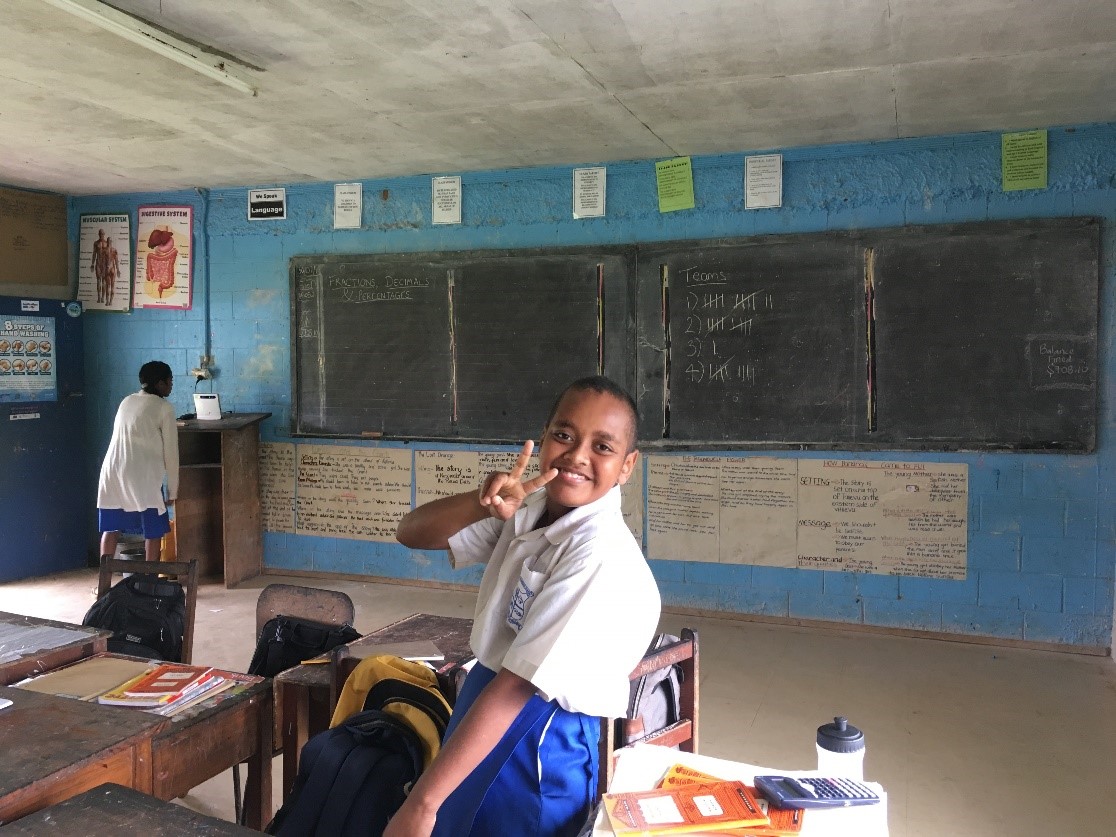
Samu in school classroom
Whilst on my project, I discovered I relied heavily upon creative and abstract thinking – skills encouraged and enhanced across the Liberal Arts programme. At the local school we had to devise alternative methods of teaching and exploring ideas, to help tackle the large language barrier and engage young pupils. Through combining art or sports with Maths and English, providing students with new and exciting ways to visualise challenging concepts, we were able to see great progression in the literacy and numeracy skills of lower ability students.
A particularly innovative technique used in Maths to teach Area, involved getting pupils to measure the height and width of huts in the village- as the clan (also called Mataqali) which their family belong to, traditionally have a role in constructing these. Considering the history and heritage of the children’s family helped them connect with and relate to the topics being covered, instilling them with the self-confidence to succeed academically.
An interdisciplinary approach to learning, found at the core of Liberal Arts at Nottingham, has been incredibly pertinent to my trip to Fiji and will certainly be valuable in both my future studies and career. I’m deeply thankful for the wonderful opportunity to visit such a beautiful part of the world and grateful for the unique chance to participate in an initiative helping to create long-lasting change.
- Two boys smiling at camera
- School playground
- Nasa and Illy-Killy playing
- Host family’s home
- Atu walking along road leading to school
No comments yet, fill out a comment to be the first

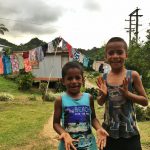
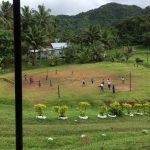
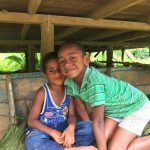
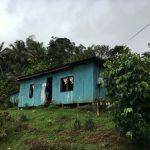
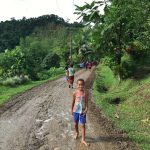
Leave a Reply